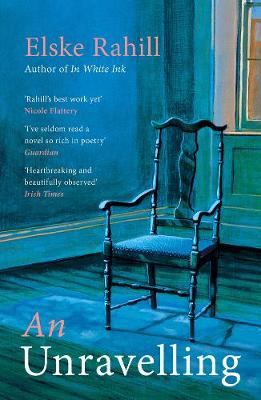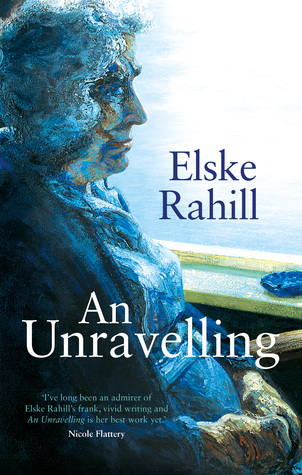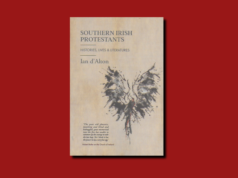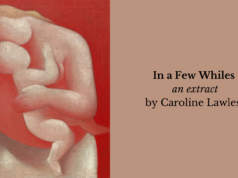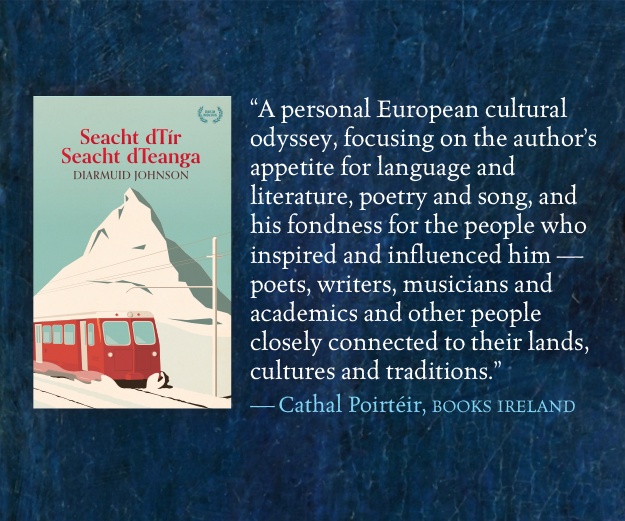Head of Zeus edition: 9781786691026 |£8.99 | pb
Lilliput Press edition: 9781786691019 | €15 | pb
‘Great love there is in them all, and great sorrow’
A well-written and fascinating novel, weighing in at a hefty 485 pages, An Unravelling is more than the sum of its parts. At its heart it is a gentle portrayal of the politics of misogyny in today’s Ireland, often perpetuated by women themselves. As Lauren Groff (discussing the work of Lorrie Moore) wrote recently, ‘When you live in a patriarchy, it is inherently political to insist that the internal life of women is of great interest and deserving of exploration’.
The unravelling is that of one family: Molly, her three middle-aged daughters (Eileen, who’s ‘mad’, Aoife, who’s ‘mean’, and Sinead, who’s ‘barren’), Eileen’s daughters Cara and Freya, and their children. Cara and Freya are clearly climbing out of an abusive past (Eileen has personality disorders, at the very least). The latest generation of girl-children show signs of resistance, but old habits persist: Cara admits her husband is right, ‘she doesn’t keep on top of the housework’. Freya, still coping (badly) with an abusive ex-partner, reads a book entitled Women who perpetuate patriarchy for a degree she barely funds by animating children’s parties (she favours a little girl who prefers goldfish face paint to sparkly-princess).
Molly’s unravelling starts with a knitting mistake that she hadn’t made since she was six, when nuns first taught her. Then she has a fall that propels the action forward.
As the novel develops, we discover why characters are angry, violent or lack self-esteem. The shadow left by Molly’s defunct husband, Dinny, is huge: he became very rich and only the third generation of women is (inefficiently) dealing with the world of work. Conscious of her failing health, Molly continues to do all the things an Irish mammy might do to maintain the love and dependence of her grandchildren: bring them soup or pancakes, buy their underwear, snap an order like any foreman, and criticise everything they do—she persists in calling Cara’s book-illustration work her ‘scribblings’. She is perspicacious, worries about them, feels responsible for their faults, is reassured if they are ‘close in the bedroom’. Men’s dark side is perceived with less indulgence as the generations progress: Sinead remembers submission to ‘Daddy’s moods’ and a (male) doctor who tells her that her (undiscussed) hysterectomy was ‘just a pre-emptive’, yet she recognises that her husband Terence might have made a good father because he is ‘interested in everything, but he has no desire to achieve or prove anything’; Freya and Cara get an ironic laugh out of imitating Molly’s ‘Oh it’s very hard for men’ as Cara runs a bath for a husband who describes her work a ‘hobby’.
Although an artist herself, Molly gave way to Dinny’s career and his artistic angst. On one occasion Dinny—with whom Molly ‘escaped’ home so she could ‘breathe’—corrected her self-portrait while she slept. For him, an elderly infirm woman painter in a Soho pub was a ‘wizened whore’ (later, Cara reads Queen of Bohemia, about a Welsh artist and writer who may well be that same painter).
The underlying plot is Molly’s decision to cut her three well-off daughters out of her will in favour of Cara, Freya and their children. Together with a weak family solicitor, this causes ructions. Molly ripples the waters of the old Irish system—that invisible, insidious patriarchal plasma, which it will take more than one generation to change. Her daughters resist, and their recovery—from a pauper’s grave in England—of Molly’s first-born boy and the ensuing fiasco-funeral may be another metaphor for failing patriarchy.
This is quiet writing—it moves in small steps and doesn’t draw attention to itself. We pay attention at the outset to grasp the various characters’ relation to each other and follow into their heads as stream-of-consciousness moves from one to another. It is lyrical: sense and image descriptions are strong, visual, concrete. Rahill has robust powers of observation, knows children well and loves a good simile. There is wonderful reproduction of the thoughts of women distracted from one task by another, and by children. There’s a rich extended metaphor relating to mothers’ and calves’ milk. Some readers may find this style of writing slows the pace. Others will savour it.
There is so much more to say about this novel—about Irish habits, idiom, family relations, art, coping with absurdity and change, how Rahill can be so knowledgeable about growing tomatoes, apple jelly, and immigrant home helps (Molly pities these women because they are ‘far from their mothers’). It is even-handed, with sympathy and empathy for everyone in our absurd world, as the title quote above—from a dying Molly—shows.
Review by Mary Byrne.
Mary Byrne spent many years working in France and Morocco as an editor, translator and teaching English at universities. Her latest book Plugging the Causal Breach was reviewed by Mary McCarthy for Books Ireland here.







